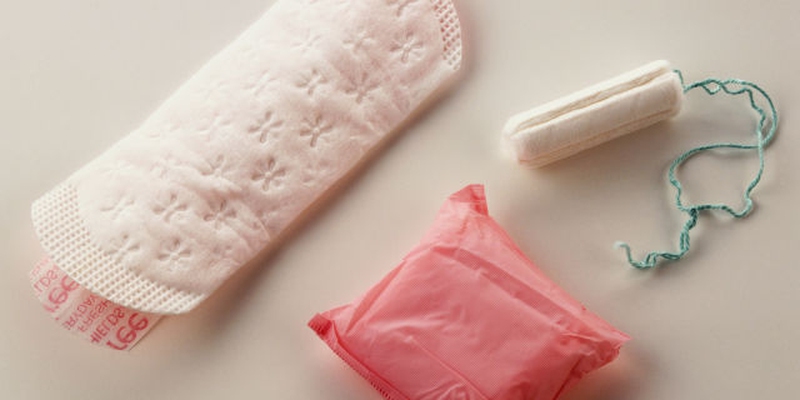Under normal circumstances, your cervix and vagina produce a small amount discharge or mucoid fluid. It is usually a clear, white discharge, but there can be a change in color due to a number of reasons. A brown discharge 2 weeks after period may indicate the presence of blood in mucoid fluid. It is natural to feel concerned when you notice spotting a couple of weeks after your period, but it is usually nothing serious. However, you may want to talk to your doctor if the discharge continues. Let's find out more about it.

Causes of Brown Discharge 2 Weeks After Period
Ovulation
A normal menstrual cycle is usually of 28-32 days, but certain factors can lead to irregularities. Under normal circumstances, ovulation takes place around the 14th day. When it happens, you may notice spotting or brown discharge. In most cases, it is normal and natural reaction to ovulation. Women who find blood discharge 2 weeks after period feel worried about that. However, to determine if everything is okay, you should also consider additional factors, such as usage of contraceptive methods, overall health, your sexual activity, and so on.
Conception
If you are sexually active and notice brown discharge 2 weeks after period, it could be implantation bleeding. You conceive when the fertilized egg implants itself into the uterine lining, and this can irritate tissues, causing them to bleed a little. You may want to talk to your doctor if you are not planning to become pregnant.
Endometrium Issues
Women with chronic endometritis may experience brown spotting after period. However, if you have this condition, you are likely to notice unpleasant odor as well as lower abdominal pain. The blood in this case is usually pink, red, or brown.
Cervical Erosion
In most cases, it develops without producing any symptoms. However, it can cause spotting, especially after sex. You usually do not need to worry if it happens occasionally after sexual intercourse.
Other Harmless Causes
It is possible to notice brown discharge after period when your body is a bit too sensitive to ovulation. It could also happen due to stress or change of climatic zone. Women who use oral contraception are more likely to experience hormonal issues, including spotting after period.
Let's See What Others Have Experienced
"It is not uncommon to have brown discharge after period. I had the same and my doctor told me not to worry, as it was old blood and my body could not flush it out during regular menstrual period. I use a liner when I experience this spotting. However, you should go talk to your healthcare provider if you suspect anything serious going on down there."
"Most cases of brown vaginal discharge are not serious. It indicates old blood and is nothing serious if happens occasionally. It could be old endometrial tissue that your body failed to get rid of during your normal menstrual cycle. It could also be implantation bleeding, which could indicate that you are pregnant. Women taking oral contraceptive pills may also experience hormonal imbalance that again leads to irregular periods and dark brown discharge. However, you should talk to your doctor immediately if your discharge seems quite heavy and you are soaking undergarments. Unpleasant odor is another sign that something is not right and you need to see your healthcare provider. This may indicate vaginitis, pelvic inflammation disease, or even a sexually transmitted disease. Only your doctor can help confirm it for you."
"It is possible to have a bit of brownish discharge when the lining in the uterus fails to detach completely. It is also possible to experience the same if something irritates the cervix. This irritation can result in slow bleeding that may turn brown before it comes out of your vagina. Nevertheless, it does not indicate anything serious, and you should not worry if it happens only once. If you experience the same situation cycle after cycle, it is time to talk to your healthcare provider for further evaluation."
How to Deal with Brown Discharge After Period
As mentioned already, brown discharge 2 weeks after period is usually nothing serious. You do not have to worry about it, especially if it is quite light. In most cases, you do not require any treatment. You just have to wait and watch. You may make use of a liner while you are bleeding or having a discharge, but nothing much is usually necessary.
Keep in mind that spotting or having brown discharge is usually nothing serious so long as there are no additional symptoms. You should visit your doctor if you also have itching, lower abdominal pain, vaginal dryness, burning, raised body temperature, and pain during intercourse. Your doctor will consider these symptoms and order some tests to make a correct diagnosis.
Your doctor will consider all your symptoms and may even ask you to undergo a pap test to make a correct diagnosis. Depending on your unique circumstances, they may prescribe certain medications as well. It is also important to adjust your lifestyle and diet to improve your condition.
View All Comments /Add Comment